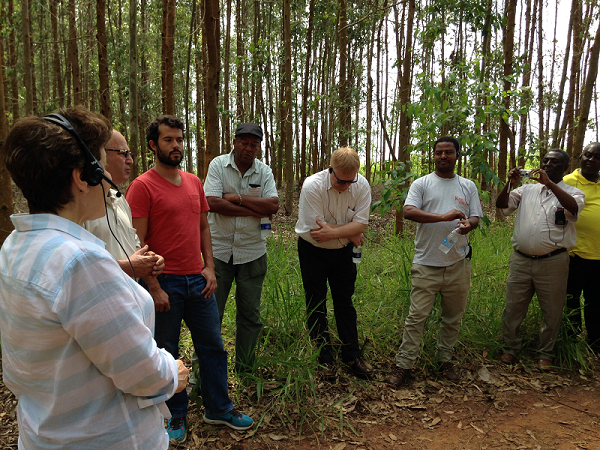 Can Ethiopia and Mozambique learn a lesson from Brazil on harnessing forests sustainably for economic growth?
Can Ethiopia and Mozambique learn a lesson from Brazil on harnessing forests sustainably for economic growth?
Thanks to a recent knowledge exchange program, yes!
As we can all imagine, Africa’s lush greenery and planted forests offer huge potential but the sector’s expansion faces major barriers like access to land, lack of access to affordable long-term finance and weak prioritization of the sector.
Take Ethiopia, for example. About 66.5 million cubic meters of the country (46% of total wood-fuel demand) is subject to non-sustainable extraction from natural forest, wood- and scrublands, resulting in deforestation and land degradation. In Mozambique, charcoal is still produced from native forests, leading to immense pressure on natural resources, and way beyond its regeneration capacity. Both countries want to know how the forest sector can contribute to their national development plans and help grow their economies and reduce rural poverty, while being environmentally sustainable.
This topic is of even more importance as we celebrate the International Day of Forests on March 21, and helps us raise awareness on the need to preserve forests and use this natural wealth in a responsible and sustainable manner.
In Africa, the domestic demand for forest products is increasing, and there is also huge potential to export pulp and paper. But to fulfill this demand, there is a need for a conducive policy and legal framework to support the sector, generate jobs and contribute to its environmental sustainability.
This is where Brazil comes in. The South American country boasts 7.6 million hectares of planted forests, a contribution of 17% to the timber harvested worldwide, and importantly, 630,000 jobs in 2013. In the 60’s, driven by a national policy to replace imports by national production, Brazil created subsidies to foster forest plantations as a way to generate fuel for pig iron industries. The result was impressive - between 1964 and 2013, over 7 million hectares of planted forests were established.
The recent south-south knowledge exchange helped bring government and private sector representatives from Ethiopia and Mozambique to the states of São Paulo and Espírito Santo in Brazil to learn from the country’s experience on the best ways to harness forest products in a sustainable manner.
 During our visit, we witnessed Brazil’s efficient supply chain including planting, harvesting, processing, distribution, and final consumption. We visited a smallholder in São Paulo who plants and harvests eucalyptus, transforms it into charcoal and sells charcoal to supermarkets. At the other end of the spectrum, we visited Fibria, the largest cellulose pulp factory in the country that produced 4.7 million tons of pulp in 2013.
During our visit, we witnessed Brazil’s efficient supply chain including planting, harvesting, processing, distribution, and final consumption. We visited a smallholder in São Paulo who plants and harvests eucalyptus, transforms it into charcoal and sells charcoal to supermarkets. At the other end of the spectrum, we visited Fibria, the largest cellulose pulp factory in the country that produced 4.7 million tons of pulp in 2013.
São Paulo also offers another successful example. The state mandated fuel wood users, such as ceramics factories, bakeries and pizza restaurants, to pay a fee to replace the renewable fuel used. This fee, transferred to forest associations, was used to establish high quality forest plantations. In Espirito Santo, a state-level payment for ecosystem services provided almost $3 million to smallholders who replanted native trees, adopted agroforestry systems, improved water supply and preserved native forests.
Lack of engagement is another challenge faced by Africa’s forest sector. While the private sector has faced problems in attracting new technology and scaling up best practices, institutions have not effectively engaged smallholders in extension services and in high productivity planting and harvesting schemes.
Both Ethiopia and Mozambique are striving to reduce emissions from deforestation and forest degradation and could experiment with different financing instruments.
Ethiopia is seeking ways to mainstream forestry into its growth and transformation plans, while Mozambique is looking at policy options to improve the business environment to attract private investment into planted forests. Whatever the options are, governments need to have clear guidelines on what is allowed in terms of planting and have the capacity to ensure compliance.
And of course, Happy International Day of Forests!
(The World Bank Group is supporting forestry sector development in Mozambique, through IFC’s engagement with the Portucel company, a large pulp and paper factory that will establish plantations in Mozambique.)


Join the Conversation